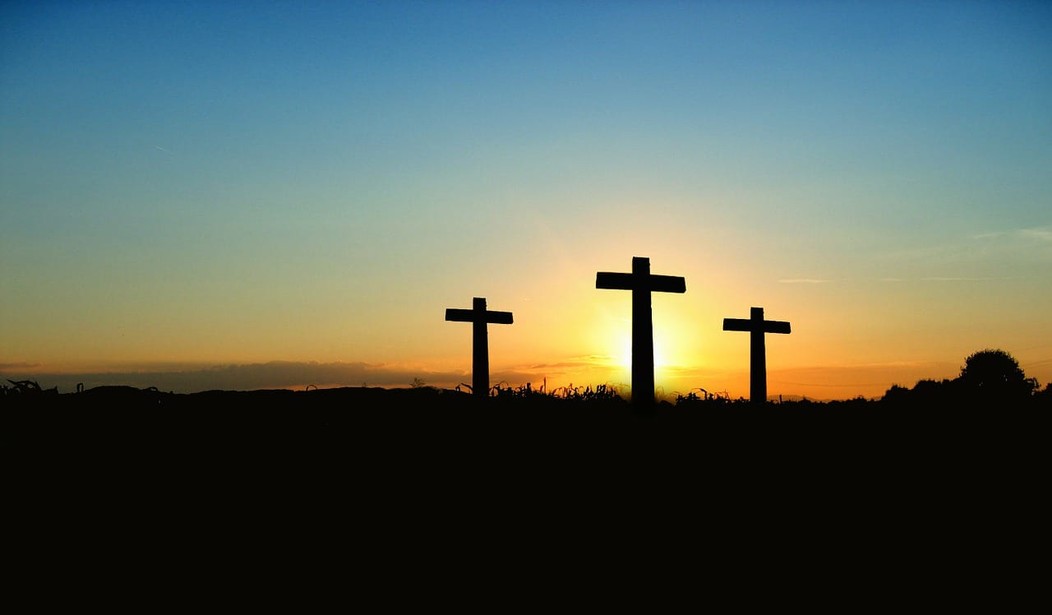The coronavirus has turned us all into shut-ins. Introverts are rejoicing, extroverts and suffering, and days are blending together. Those lucky enough to have jobs permitting telework have something in common with those who have been laid off — each day seems indistinguishable from the rest. For millions, this succession of monotonous days are jam-packed with insecurity and fear — but they remain monotonous nonetheless.
The twin holidays of Passover and Holy Week should come crashing into this monotony like a wrecking ball. For Jews, Passover celebrates the end of bitter slavery in Egypt and God’s powerful hand leading them into the Exodus. For Christians, Holy Week recalls the roller coaster of Jesus’ triumphal entry into Jerusalem, His Crucifixion, and His Resurrection.
The coronavirus threatens to turn these epic celebrations into just another few days of monotony. Christians and Jews cannot let this happen. Even if services must be conducted over the internet or with the few people who live in our homes, adherents of these biblical religions must recognize the central importance of the Exodus and the Resurrection.
The Exodus established the Hebrews as God’s chosen people — chosen from the peoples of the world to bring blessing. As C.S. Lewis explained in The Problem of Pain, the Hebrews took a monumental step in religion: they identified the mysterious spiritual world with the awful Giver of the moral law. Their conception of God as both creator of the universe and moral lawgiver is astounding — and it came as the result of direct revelation.
In the Exodus, that God defeated a majestic centuries-old empire that still captures the imagination millennia later on behalf of a marginalized and enslaved people group. The glory of Egypt, one of the oldest and most dignified civilizations, was bested by a bunch of slaves. God showed his power through miraculous signs and wonders — turning the water to blood, bringing frogs and boils and locusts, and eventually killing the firstborn sons of the proud Egyptians. The dreadful Spirit of God only passed over the Hebrews, His chosen people, in this awful judgment.
Yet the story did not end there. The Hebrews entered a cycle of rebellion, defeat, repentance, and restoration that echoes the human condition. Even when God gave them the Law on Mount Sinai, the Hebrews rebelled and worshiped a golden calf. When God led them into the Promised Land, they rejected Him and he let them fall into the hands of their enemies. Yet when they repented, He would raise up a Judge who would free them, and the cycle would begin all over again.
God sent prophets to the people of Israel, but they did not listen. Indeed, they killed many of the prophets He sent. Eventually, God sent His own Son, and He too was unjustly executed.
Just before Passover, Jesus entered Jerusalem, knowing the journey would end with His death. He entered the city a hero, but He did not lead a rebellion against the Romans, as the people expected. Instead, He celebrated the Passover meal with His disciples on Maundy Thursday, warning that He would soon die. He allowed Himself to be betrayed and handed over to authorities who mocked and falsely accused Him.
On Good Friday, the Son of God was put to death in a brutal and humiliating manner. He was crucified between two criminals. While on the cross, He asked God the Father to forgive the men who mocked and murdered Him. Then He said those bloodcurdling words, Eloi Eloi, Lama Sabachthani? “My God, My God, why have you forsaken me?”
At that moment, something happened that shattered the universe and restored the relationship between sinful human beings and the God who created them. The curtain in the Temple ripped in two. The dead rose from their graves. The very nature of God was split for an instant that made eternal life a possibility for billions.
Three days later, Jesus rose from the dead, proving the truth of His words. His Resurrection also changed the hearts of His disciples. When Jesus was arrested, they scattered and betrayed Him. When Jesus rose again, they discovered a new purpose and fortitude. They spread His word to the ends of the earth and died horrific deaths to testify to the hope of the Resurrection.
Their testimony changed the history of the world in profound ways. In fact, it is arguable that the Resurrection of Jesus is the most important event in world history because it inspired so much that now defines the modern world: charity, science, limited government, free markets, the idea of individual human dignity, and so much more.
Passover, Maundy Thursday, Good Friday, and Easter deserve to be celebrated. They should break the monotony of the coronavirus because they broke the monotony of world history. God shattered the world in these events, making Himself known to humanity and providing a path back to Him. Whatever happens in the next few days, Jews and Christians cannot allow the current crisis to distract them from the larger truths of God.
So we all should pray the words of the Book of Common Prayer, asking God “that, with you as our ruler and guide, we may so pass through things temporal, that we lose not the things eternal.” Amen.
Tyler O’Neil is the author of Making Hate Pay: The Corruption of the Southern Poverty Law Center. Follow him on Twitter at @Tyler2ONeil.









